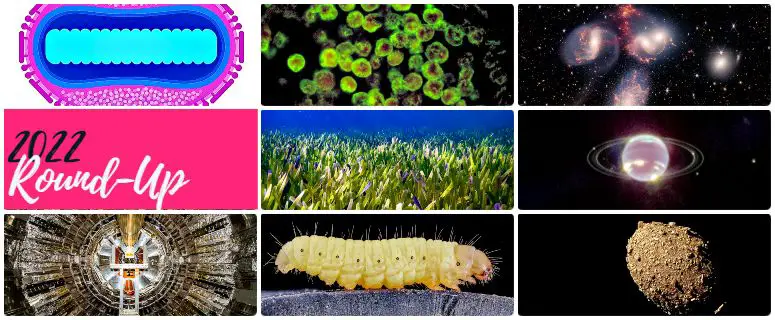Welcome to the cerebral gymnasium, fellow knowledge athletes! At HowSmart.net, we’re not just about tossing facts at you like a bland salad; we’re here to spice up your brain’s routine with a dash of humor and a pinch of awe. In this post, we’re serving up 15 science trivia questions that are so mind-boggling they’ll make Neil deGrasse Tyson raise an eyebrow.

Buckle up if you’re ready to give your neurons a playful nudge. You’ll learn something that might make you the star of your next trivia night! We’re about to embark on a journey through the wild and wacky world of science trivia, where facts are fun, and you never know what astonishing tidbit you’ll uncover next.
Why Science Trivia Isn’t Just for Geeks
Think science trivia is just for the pocket-protector crowd? Think again! It’s not all about memorizing the periodic table or knowing how many bones are in the human body (though that’s pretty cool, too: While babies are born with approximately 270 bones, those bones merge over time; thus, adults typically boast just 206 bones). Science trivia is like the Swiss Army knife of knowledge – versatile, practical, and always suitable for breaking the ice at awkward social gatherings.
Curiosity Ignition
First off, let’s talk about curiosity ignition. Science trivia questions are like those bright sparks that can light up a big, roaring fire of interest in the scientific world. Before you know it, you’re not just answering questions – you’re questioning answers, and that’s where the real fun begins.
Brain Buffing
Then there’s the brain-buffing aspect. Wrestling with science trivia is a mental workout. It’s like taking your brain to the gym, but instead of lifting weights, you’re hoisting hefty facts and tossing around theories. These mental gymnastics strengthen your problem-solving muscles, sharpen your critical thinking skills, and might even make you a hit at trivia night.
Social Sorcery
And let’s not forget science trivia’s social sorcery. It’s a fantastic way to connect with others. Whether you’re battling it out in a heated game of trivia or just sharing cool facts over coffee, science trivia is a surefire way to spark conversations, forge friendships, and maybe even impress someone with your vast knowledge of how many eyes a bee has.
Science trivia isn’t just about filling your brain with facts; it’s about stoking curiosity, sculpting your cognitive muscles, and weaving social interaction. So, when you stumble upon a trivia question about science, embrace it – it’s your ticket to a world of wonder and wisdom.
The Quirky Side of Science: 15 Questions That Make You Say “Huh?”
Looking for interesting science trivia questions and answers? Look no further. We divided this section into three groups: Botanics (Plants quiz), Biology (Animals quiz), and Physical sciences (Physics and Chemistry quiz). Because what are some good science trivia questions without a trivia challenge?
Bizarre Botanicals: When Plants Confuse and Amuse
In the world of weird plants, you’ll find species that eat insects, flowers that smell like rotten meat, and trees that bleed red sap. Mother Nature clearly has a sense of humor, blending the bizarre with the beautiful in the plant kingdom.
Animal Antics: Nature’s Comedians
The animal kingdom is rife with comedians: dancing birds, prankster dolphins, and mischievous monkeys. Their antics aren’t just fascinating biology and are a testament to nature’s playful side.
Physics Funnies: When Questions Have Physical Chemistry
Who said physics and chemistry were all serious equations and theories? The reality is a series of comical mishaps – a world where toasters launch breakfast, balloons stick to hair in static cling, and cats always land on their feet (well, almost always).

Why settle for the ordinary when you can have the extraordinary? With our tailored trivia quizzes, you’re not just getting questions; you’re getting an experience. And the coolest part? It’s all tailor-made for you.
So why wait? Order now, and let’s create some unforgettable content together!
Remember This: Science Trivia as Your Brain’s Sticky Note
Ever wonder why you can recall the name of the most giant dinosaur (Argentinosaurus, in case you were wondering) but forget where you put your keys? Welcome to the fascinating world of knowledge retention, where science trivia is a surprisingly effective memory aid.
Active Learning
First is active learning, the brain’s favorite workout. When you engage in science trivia, you’re not just passively absorbing information but actively grappling with it, turning it over in your mind, and connecting it with what you already know. This process is like Velcro for your brain, making those facts stick.
The Power of Repetition
Repetition, the mother of all learning, is also a significant player. Each time you recall a science trivia answer, you’re paving a neural highway in your brain, making it easier to retrieve that information later. Think of it as creating shortcuts to the facts you need, whether it’s the temperature of the Sun’s core (about 15 million degrees Celsius, 27 million Fahrenheit, an extreme temperature necessary to sustain the nuclear fusion reactions that power the Sun) or the number of human bones (206, in case that one slipped your mind).
Lasting Knowledge
But here’s the real kicker: science trivia isn’t just about memorizing facts and understanding concepts. When a trivia question makes you ponder why the sky is blue or how a black hole works, you’re not just learning an answer but exploring a concept. This deep dive into understanding cements information in your memory, turning fleeting facts into lasting knowledge.
In essence, science trivia is like your brain’s sticky note, a fun and engaging way to remember and understand the wonders of the scientific world. So, the next time you encounter a science trivia question, think of it as an opportunity to boost your memory while having a blast.
Why Science Trivia Should Be Your New Study Buddy
Imagine learning felt less like a chore and more like playing your favorite game. That’s the magic of weaving science trivia into education tapestry. It’s not just about stuffing facts into your brain; it’s about turning learning into an adventure.
The Fun Factor
First and foremost, science trivia brings fun into learning. It’s the educational equivalent of sneaking vegetables into a delicious smoothie – you’re gaining knowledge, but it feels like you’re just having a good time. This element of enjoyment is crucial. It transforms learning from a mundane task into an engaging experience, keeping boredom at bay and motivation high.
The Magic of Critical Thinking
Critical thinking boosts brainpower. Science trivia questions aren’t just about recalling facts, applying knowledge, making connections, and solving puzzles. These mental gymnastics help learners develop sharp analytical skills, turning them into problem-solving ninjas.
The Social Spice
But wait, there’s more – social interaction. Science trivia fosters teamwork and collaboration. It’s like social glue, bonding learners as they huddle over questions, debate answers, and collectively gasp at fascinating facts. This collaborative environment enhances learning, builds communication skills, and strengthens relationships.
Memory Marathon
Moreover, let’s talk about the memory jog. Engaging in science trivia improves information retention. It’s one thing to read a fact; it’s another to recall it and apply it to a trivia challenge. This active engagement with content ensures that information sticks around for the long haul, turning fleeting facts into lifelong knowledge.
Curiosity Catalyst
Science trivia sparks curiosity. It can ignite learners’ interest, leading them to explore topics they might never have encountered otherwise. This exploration fosters a love for science and learning, setting the stage for a lifetime of discovery.
Science trivia is an educational game-changer. It makes studying enjoyable, encourages critical thinking, builds social skills, enhances memory, and sparks curiosity. So, why not make science trivia your new study buddy and turn learning into an adventure?
Curiosity Didn’t Just Thrill the Cat: Science Trivia Wonders
Curiosity might have had its way with the cat, but it’s the golden ticket to a Willy Wonka factory of knowledge in human learning. And what better way to stir up this curiosity than through the tantalizing tease of science trivia?
World Detectives
At its core, science trivia is a curiosity spark plug. Each question is a gentle nudge, pushing you to peek behind the curtain of the known and explore the realms of the unknown. It’s like being a detective in a world where every fact is a clue, and every question leads you down an unexpected, intriguing path.
Into the Unknown
Science trivia challenges you to stretch beyond the comfortable confines of what you know. Facing a question about the stars, the ocean’s depths, or the human body’s intricacies compels you to think, wonder, and question. Curiosity thrives on the fertile ground of the unknown, where every answer leads to more questions.
Kaleidoscope of Topics
Science trivia exposes you to various topics, from the microscopic to the cosmic. This exposure broadens your horizons, introducing new concepts, ideas, and worlds. It’s like a buffet of knowledge, where you can sample everything and discover what truly tantalizes your intellectual taste buds.
Science trivia is more than just a game or pastime. It’s a catalyst for curiosity, a tool for exploration, and a gateway to wonder. It’s a reminder that learning is not just about acquiring knowledge; it’s about the joy of discovery, the thrill of exploration, and the endless journey of understanding the universe we inhabit.”
—
Team Building with a Twist: The Science Trivia Challenge
Who says team building has to be all trust falls and awkward icebreakers? Enter the world of science trivia, where team building gets a brainy makeover, transforming mundane exercises into thrilling knowledge quests.
Unlock Team Members’ Potential
Imagine this: a science-themed escape room where teams navigate through a maze of riddles and puzzles, each a stepping stone to unlocking the universe’s secrets. It’s not just about finding the key to escape; it’s about unlocking the potential of every team member, encouraging collaboration, communication, and collective problem-solving.
Diversity of Thought Fest
Or picture a science trivia contest, where teams battle it in a friendly competition of wits and wisdom. It’s a race to see who can recall the fastest, reason the sharpest, and connect the dots with the most flair. Science trivia questions aren’t just a test of knowledge; it’s a celebration of diverse thinking, where each member brings their unique strengths into play.
Party in the Lab
And why not add hands-on science? Team-building exercises can include conducting experiments, where each team must work together to hypothesize, test, and present their findings. It’s a chance to get those hands dirty in the name of science, fostering innovation and creativity.
Team-Building Exercises
Science trivia in team-building exercises is more than fun and games. It’s about building a team that thrives on curiosity, values diverse perspectives, and approaches challenges collaboratively. It’s about creating an environment where learning is a shared journey, and every question is an opportunity to grow together.
15 Mind-Boggling Science Trivia Questions: Test Your Knowledge!
Ready to put your science skills to the test? Here are 15 mind-blowing general science trivia questions and answers that challenge even the most seasoned trivia buffs. Dive in and see how many you can answer correctly!
- Millipede vs. Centipede: What’s the difference between a millipede and a centipede?
- Mysterious Marine Snow: What is ‘Marine Snow’?
- Benzene Encounters: Where does one encounter benzene?
- Kidney Stone Conundrum: How many people in the US suffer from kidney stones?
- Solar Flare Spectacle: What is a solar flare?
- Jonah’s Icefish Intrigue: What’s unique about Jonah’s Icefish?
- Tree Species Tally: How many tree species are on Earth?
- Saxaul Trees’ Secret: What makes Saxaul trees unique?
- Penguin Proportions: What is the world’s largest penguin species?
- CERN’s Acronym Unveiled: What does CERN stand for?
- Immortal Creatures: Which animal families have immortal members?
- Deadly Amoeba Alert: How is Naegleria fowleri a deadly amoeba?
- Jupiter’s Icy Mystery: What is Jupiter’s ice-encrusted moon named?
- Giant Sequoia Grandeur: What’s the world’s largest plant?
- Wax Worm Wonders: Why are wax worms – moth larvae – called this way?
Now that you’ve tackled these questions, how did you fare? Whether you’re a trivia titan or just starting, remember each of these science trivia questions is a path to learning something new. Keep that curiosity alive when exploring the answers!
Answers Unveiled: The Correct Explanations to this Trivia Quiz
Curious about how you did with those brain teasers? Here are the answers to the 15 mind-boggling science trivia questions. Let’s see how many you got correct!
- Millipede vs. Centipede: Millipedes have two pairs of legs per body segment and move slowly with a rounded body, while centipedes have one pair per segment and are quicker with their flat body.
- Mysterious Marine Snow: Marine snow is organic matter that falls from the ocean’s upper layers to the deeper parts, consisting of dead organisms, fecal matter, and other debris.
- Benzene Encounters: Benzene, a colorless liquid with a sweet odor, is commonly found in industrial workplaces, gasoline stations, and tobacco smoke.
- Kidney Stone Conundrum: In the US, approximately 1 in 10 people suffer from kidney stones over their lifetime.
- Solar Flare Spectacle: A solar flare is a sudden, intense release of energy from the Sun’s surface, characterized by a burst of electromagnetic radiation.
- Jonah’s Icefish Intrigue: Jonah’s Icefish, or the Antarctic icefish, lacks hemoglobin and relies on a specialized system of blood vessels and an enormous heart to deliver oxygen.
- Tree Species Tally: Earth has roughly 73,300 tree species.
- Saxaul Trees’ Secret: Saxaul trees are unique for their long taproots that reach deep water sources and small, waxy leaves that reduce water loss.
- Penguin Proportions: The Emperor Penguin is the world’s largest species.
- CERN’s Acronym Unveiled: CERN stands for the European Organization for Nuclear Research (in French).
- Immortal Creatures: The Turritopsis dohrnii jellyfish and the Hydra genus of freshwater polyps are known for their potential for immortality.
- Deadly Amoeba Alert: Naegleria fowleri causes a rare but severe brain infection called primary amebic meningoencephalitis (PAM) when it enters the body through the nasal passages.
- Jupiter’s Icy Mystery: Jupiter’s ice-encrusted moon is named Europa.
- Giant Sequoia Grandeur: Poseidon’s ribbon weed, or Posidonia australis, found in Shark Bay, off the western coast of Australia, is the world’s largest plant.
- Wax Worm Wonders: Waxworms are named for their beeswax diet, found in beehives where they reside.
So, next time you plan a trivia session, ditch the mundane and embrace the marvels of science trivia questions. It’s a surefire way to energize your audience, spark creativity, and foster a culture of continuous learning and collaboration.
Why accept the mundane when you can embrace the exceptional? Our customized trivia quizzes offer more than questions; they provide a remarkable event. And the best part? It’s all uniquely designed for you. Let’s create some unforgettable content together! Click for more details.
Even more Science Trivia Quizzes
- The Big 2022 Science Quiz: 22 Science Trivia Questions
- The Big 2021 Science Quiz: 21 Science Trivia Questions
- The Big 2020 Science Quiz
- 100 Science Trivia Questions
- Oceanic and Marine Life Quiz
- NASA Quiz
- Animals Quiz
Science Trivia FAQ
What are good science trivia questions?
Good science trivia questions challenge and intrigue the mind while providing educational value. Examples include:
– “What gas do plants absorb during photosynthesis?”
– “How many planets in our solar system have rings?”
– “What is the hardest natural substance on Earth?”
What are some science quiz questions?
Science quiz questions can cover a wide range of topics. Here are a few examples:
– “What is the chemical symbol for gold?”
– “Which planet is known as the ‘Red Planet’?”
– “What is the process by which plants make their food?”
What’s a fun trivia question?
Fun trivia questions often include surprising or unusual facts. For instance:
– “What animals are known to laugh?”
– “How long can a snail sleep?”
– “What is the only fruit to have its seeds on the outside?”
What is the hardest question in science?
One of the hardest questions in science, often debated and researched, is “What is the nature of dark matter and dark energy?” These mysterious components comprise a significant portion of the universe yet remain largely unknown and undetectable with current technology.
Can you create a custom Science Trivia Quiz for me?
Sure! We offer tailor-made trivia quizzes for every occasion. Please see the details below.

With our customized trivia quizzes, you get more than questions; you get an unforgettable experience. Let’s create something amazing together! Click for more details.




